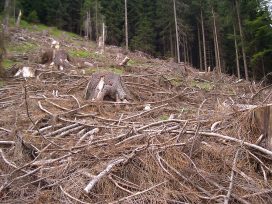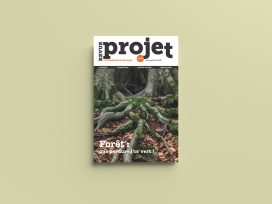
A combination of geopolitics and economic pressure is weakening the political will behind the European Green Deal, with the EPP leading the deregulatory offensive. Forests in particular risk becoming collateral victims of a rightwing U-turn.
From climate change to political corruption and authoritarianism, leaders of protest movements share a common dilemma: how to achieve impact when existing parties and institutions cannot be trusted?
Overcoming fragmentation between each other and within parliamentary forces is paramount for protest movements whose ultimate goal is policy change, as Helena Marschall from Fridays for Future underlines. There is a strong European call for change: international attention helps make corrupt leaders accountable, says Romanian activist Radu Vancu.
But the question remains: how can political forces be trusted given the radical disappointment characterizing most protest movements? ‘Hope lies within thinking about society as a community’, says Hungarian civic campaigner Dóra Papp.
Watch the video or listen to the address in Gagarin, the Eurozine podcast on Spotify, Apple Podcasts, Castbox, Stitcher or Soundcloud:
You can also watch the debate
Political scientist Claus Leggewie moderated a fishbowl panel about the future of protest movements with activists Dóra Papp (civic campaigner, Hungary), Radu Vancu (‘We See You’ Movement, Romania) and Helena Marschall (Fridays For Future, Germany) at the 30th European Meeting of Cultural Journals ‘Europe ‘89: The promise recalled’, 2 November 2019 in Berlin.
Read Claus Laggewie’s article ‘How to get rid of autocrats’ in Eurozine.
Find more videos and articles from the Eurozine conference ‘Europe ‘89: The promise recalled’, 1-3 November 2019 here.
Published 29 January 2021
Original in English
First published by Eurozine
© Claus Leggewie / Dóra Papp / Helena Marschall / Radu Vancu / Heinrich Böll Stiftung / Eurozine
PDF/PRINTSubscribe to know what’s worth thinking about.

A combination of geopolitics and economic pressure is weakening the political will behind the European Green Deal, with the EPP leading the deregulatory offensive. Forests in particular risk becoming collateral victims of a rightwing U-turn.

Why forest restoration projects are counterproductive; how citizens are mobilizing to protect Europe’s woodland from the right; and why diversity is the solution to sustainable timber.